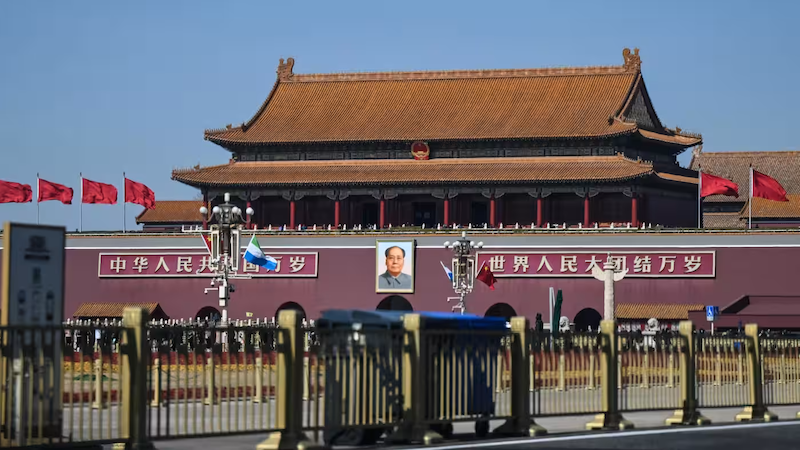Thomas Daniel was quoted in Nikkei Asian Review 2 April 2024
After Indonesia’s Prabowo, Beijing woos diplomats from countries not aligned with U.S.

by CK TAN and LIEN HOANG, Nikkei staff writer
SHANGHAI/HO CHI MINH CITY — Beijing is welcoming a string of Southeast Asian foreign ministers this week, as it moves to shore up cooperation with regional players that keep the U.S. at arm’s length.
East Timor’s Bendito Dos Santos Freitas, Laos’ Saleumxay Kommasith and Vietnam’s Bui Thanh Son are all due to stay in China from Tuesday to Friday, and are expected to hold talks with Chinese Foreign Minister Wang Yi.
The flurry of diplomacy is aimed at taking stock of relations after the leaders of all three countries met with Chinese President Xi Jinping last year. China hopes to achieve “more practical results” in its bilateral ties, Wang Wenbin, a spokesperson of the Chinese Foreign Ministry, said Monday.
The guests come on the heels of Indonesian President-elect Prabowo Subianto, who met with Xi in Beijing on Monday. The Chinese president told Prabowo that Beijing is prepared to strengthen cooperation that suits Indonesia’s development strategies, following the success of the Jakarta-Bandung high-speed railway built by Chinese companies.
China and the U.S. are locked in a battle for influence in the key Southeast Asian region, home to growing markets and strategically situated maritime nations. Beijing appears to be making headway in this fight: For the first time, China edged ahead of the U.S. as the preferred superpower in a closely watched survey of ASEAN public opinion, thanks to growing trade and investment ties.
The three Southeast Asian states dispatching their top diplomats this week have a range of motivations.
East Timor’s Prime Minister Xanana Gusmao visited Beijing last September, leading to an upgrade of ties to a comprehensive strategic partnership. Plans for cooperation include the possible development of oil and gas in the former Indonesian colony, with Chinese companies.
A subsidiary of China National Nuclear Corp., which built East Timor’s biggest electricity infrastructure project in 2015, was also awarded a contract to operate and maintain the grid until 2024. Gusmao, in an interview with Nikkei last December, defended East Timor’s decision to award infrastructure projects to Chinese companies as part of the country’s “decision process,” denying that his government was kowtowing to Beijing.
In landlocked Laos, Xi told his counterpart, Thongloun Sisoulith, last October that Beijing would provide additional economic support, aiming to maximize an existing cross-border railway to open up regional connectivity. Both countries say the 1,035 kilometer, China-built high-speed railway that connects Kunming in southern China with the Laotian capital Vientiane has fueled economic activity since its completion in 2021.
Following Beijing’s deferral of $2 billion of Laos’ debt in 2022 and 2023, Kommasith’s agenda may include negotiating for further relief. Half the Southeast Asian country’s external debt is owed to China, according to the World Bank.
The visit by Vietnam’s Son, meanwhile, comes after he made a recent trip to Washington and reflects Hanoi’s strategy of striking a balance between the rival powers. Last year, Hanoi invited the U.S. and Chinese presidents to visit Vietnam within the span of a few months.
This time, Chinese and Vietnamese officials are expected to discuss expanding trade across their shared border, as well as potential railways floated during Xi’s Hanoi visit in December.
“Hanoi has always been strategic and multipronged in its engagements with Beijing,” said Thomas Daniel, a senior fellow at the Institute of Strategic and International Studies Malaysia, noting that Vietnam is also pursuing new strategic ties with Japan and the U.S.
Vietnam is a top market for China’s exports, especially since the U.S.-China trade war pushed Chinese and other companies to ship goods through Vietnam. The Southeast Asian nation is looking to develop semiconductors, rare earths and high-speed rail with input from Chinese partners.
Son’s meetings with Chinese officials are intended to “reassure” them that ties are still strong, as well as to shore up relations between the world’s two biggest communist parties, Jack Butcher, a researcher and part-time lecturer at the University of Adelaide, told Nikkei Asia. “China understands Vietnam’s plight quite well,” Butcher said. “It shares its experiences as a country that’s socialist while adapting to market reforms.”
While the South China Sea remains a point of contention, Hanoi is also taking advantage of the “de-risking craze” to attract foreign investors who wish to reduce risks in China and elsewhere, according to Butcher.
“Vietnam is nonaligned and very much wants to stay that way,” he said.
This article first published in Nikkei Asian Review, 2 April 2024





